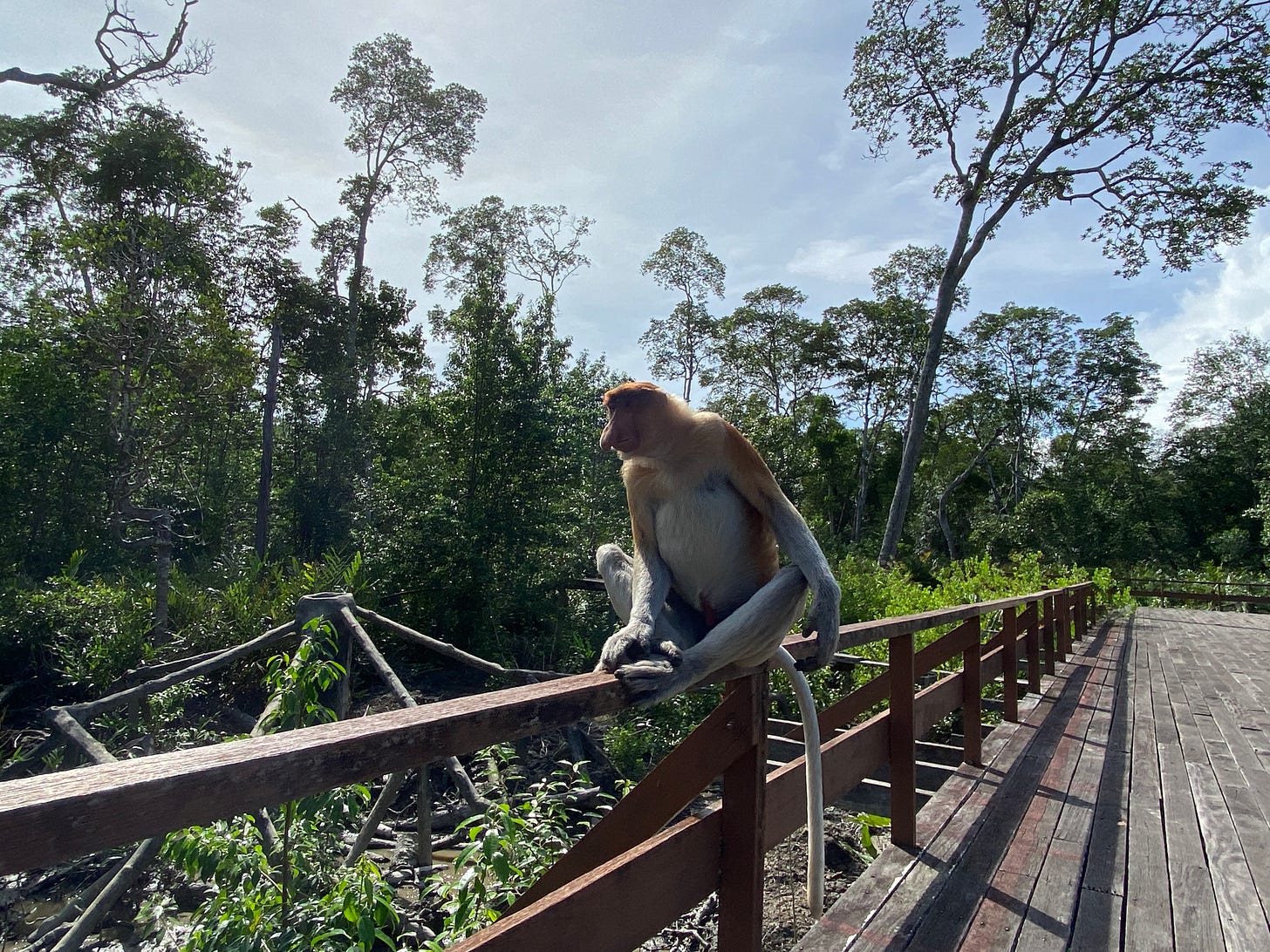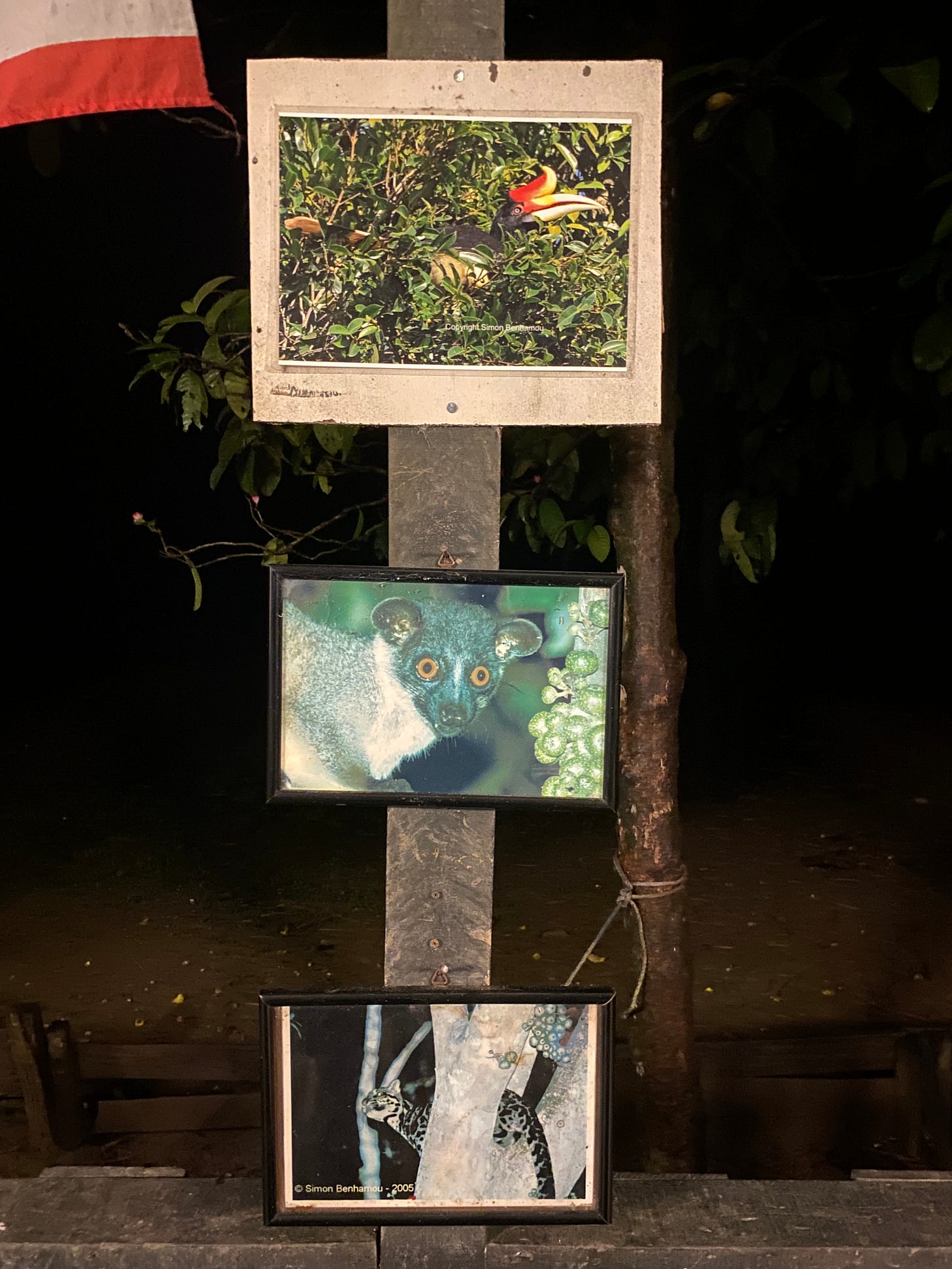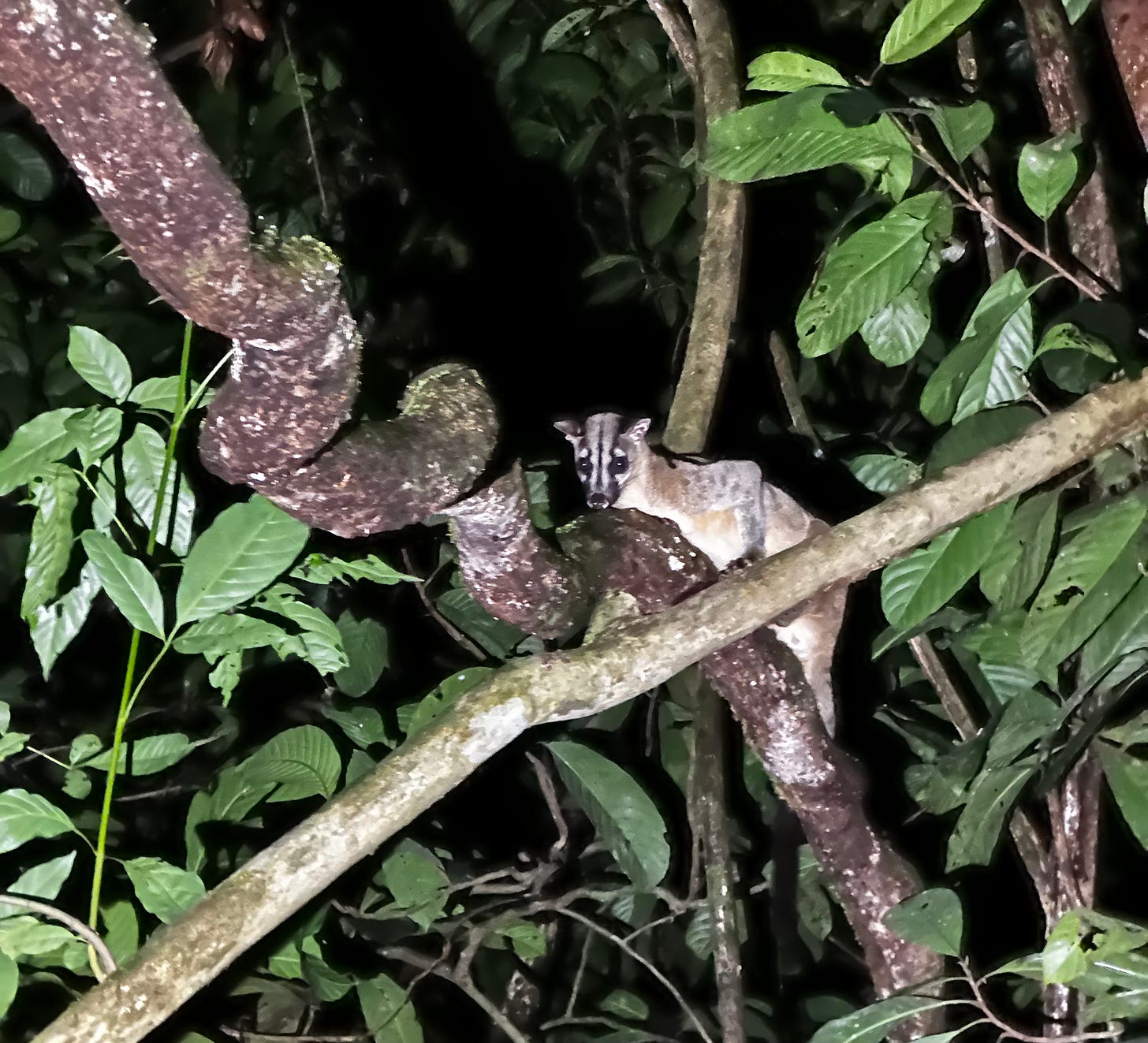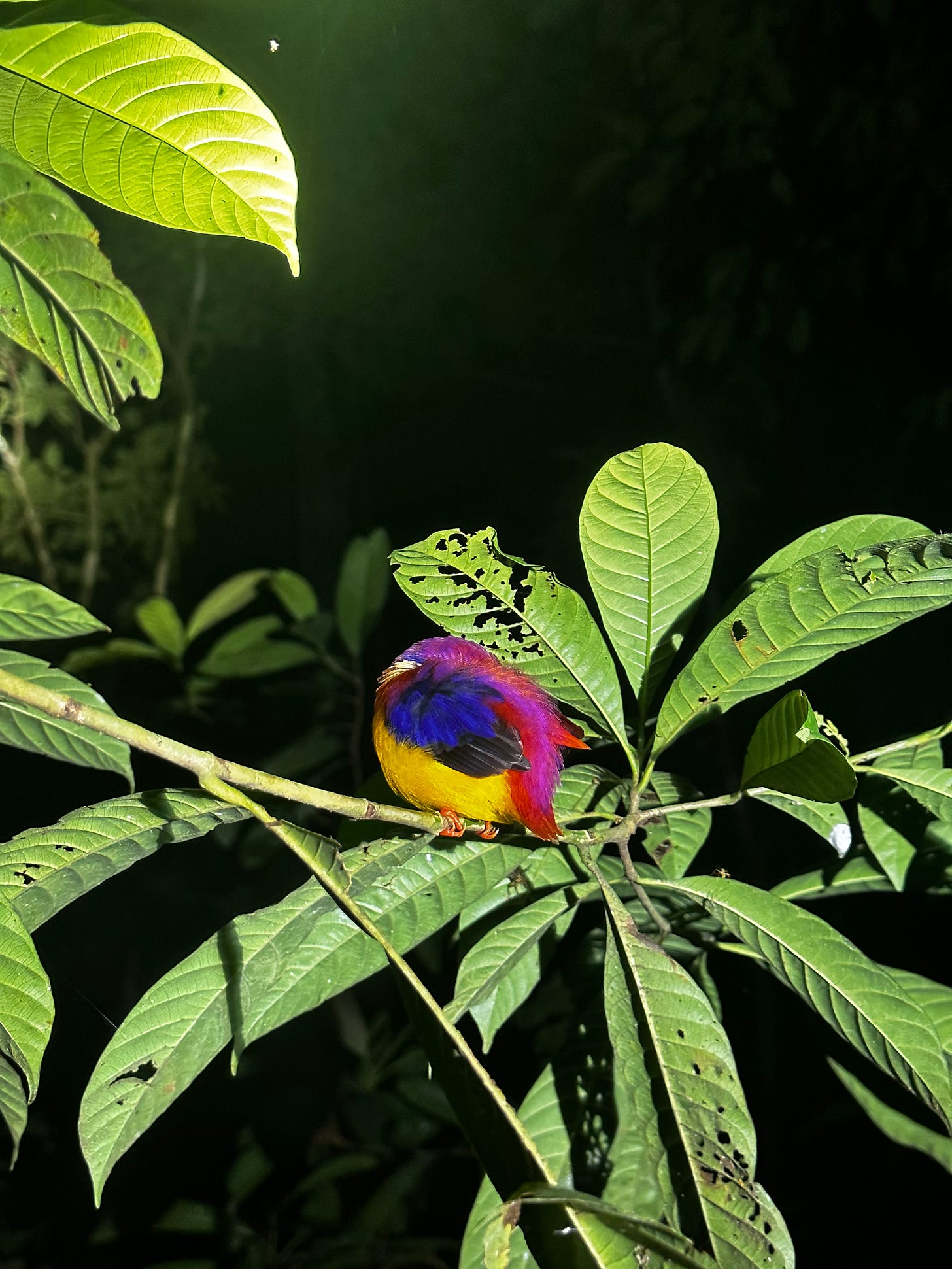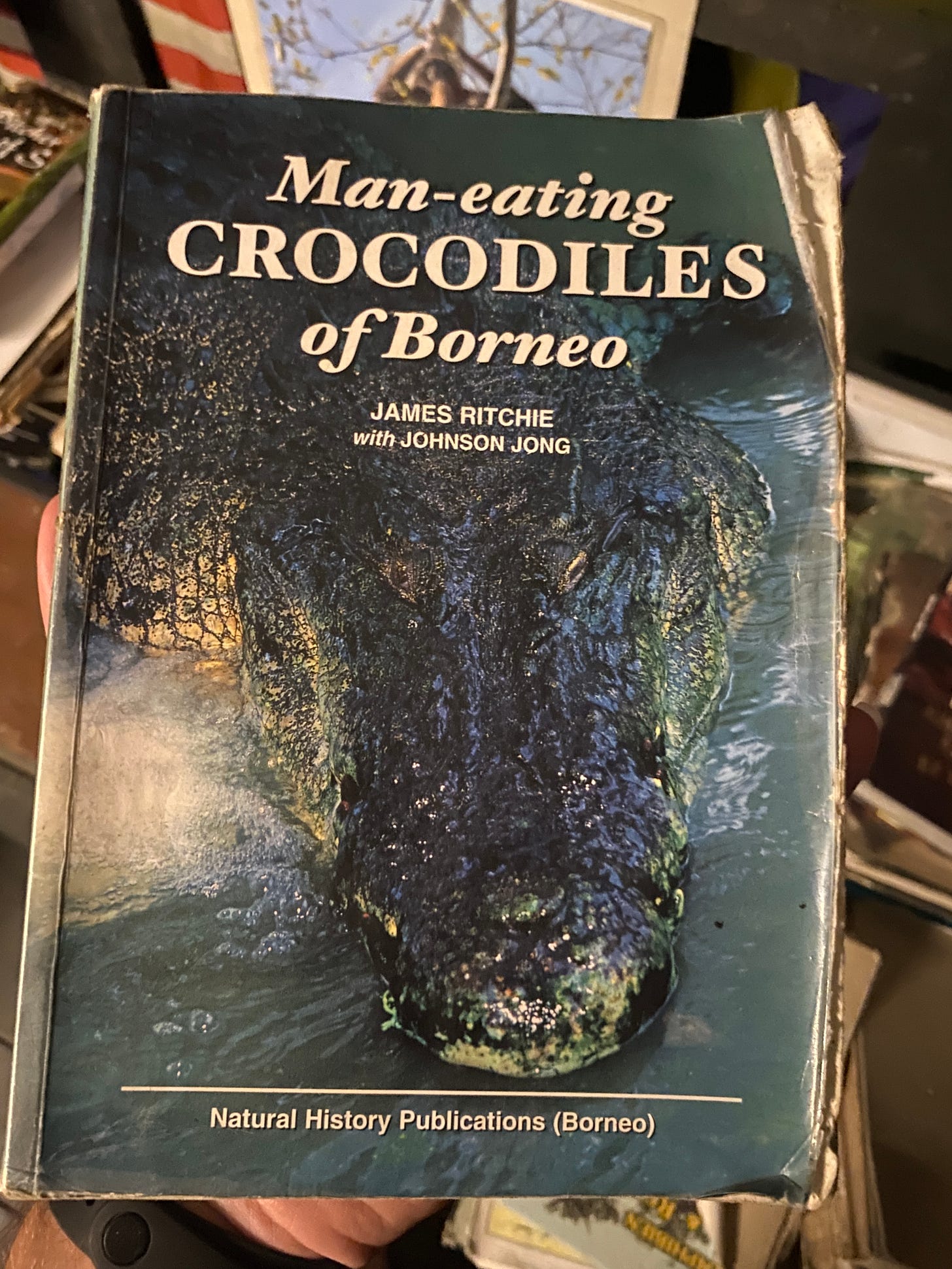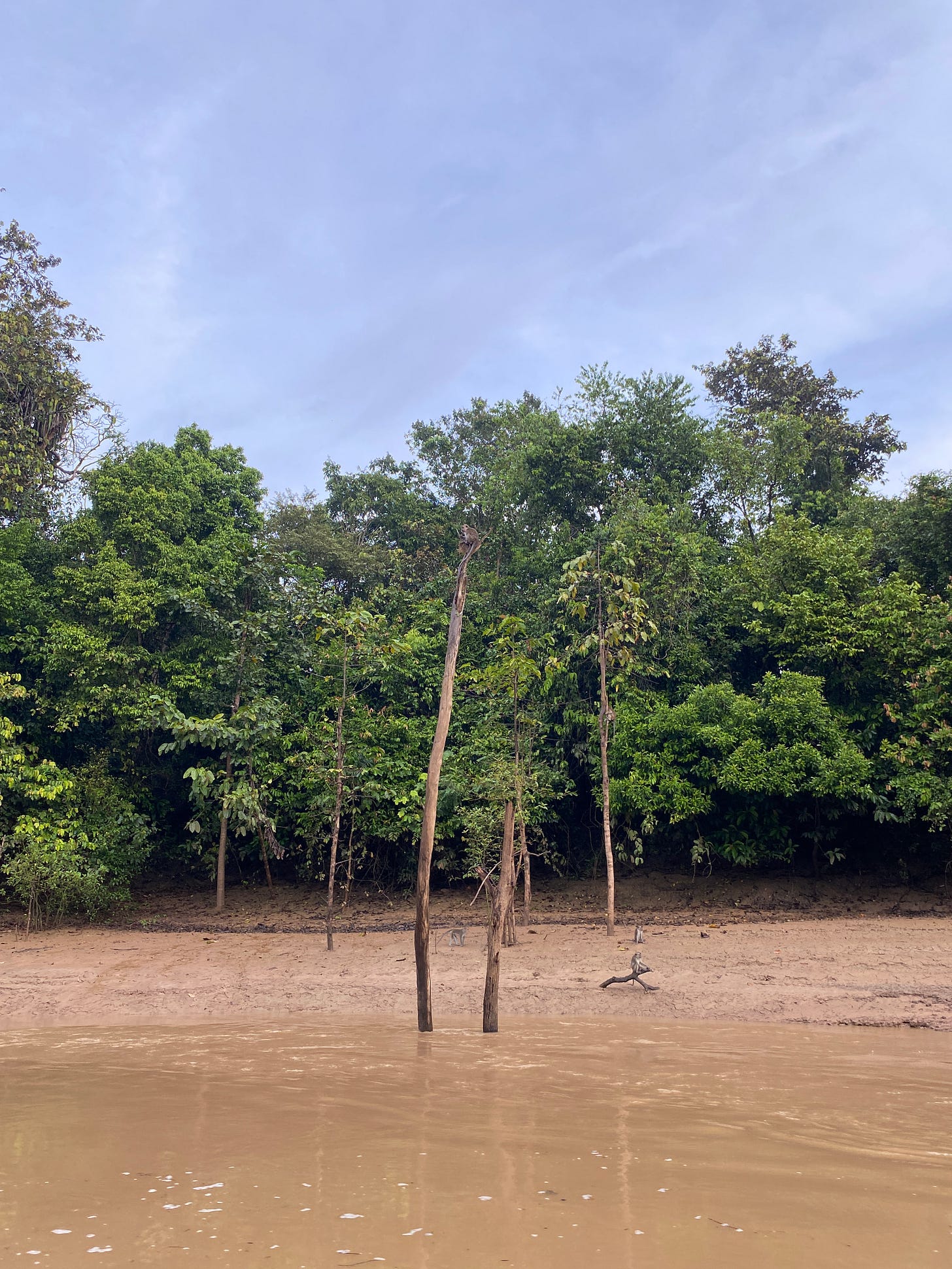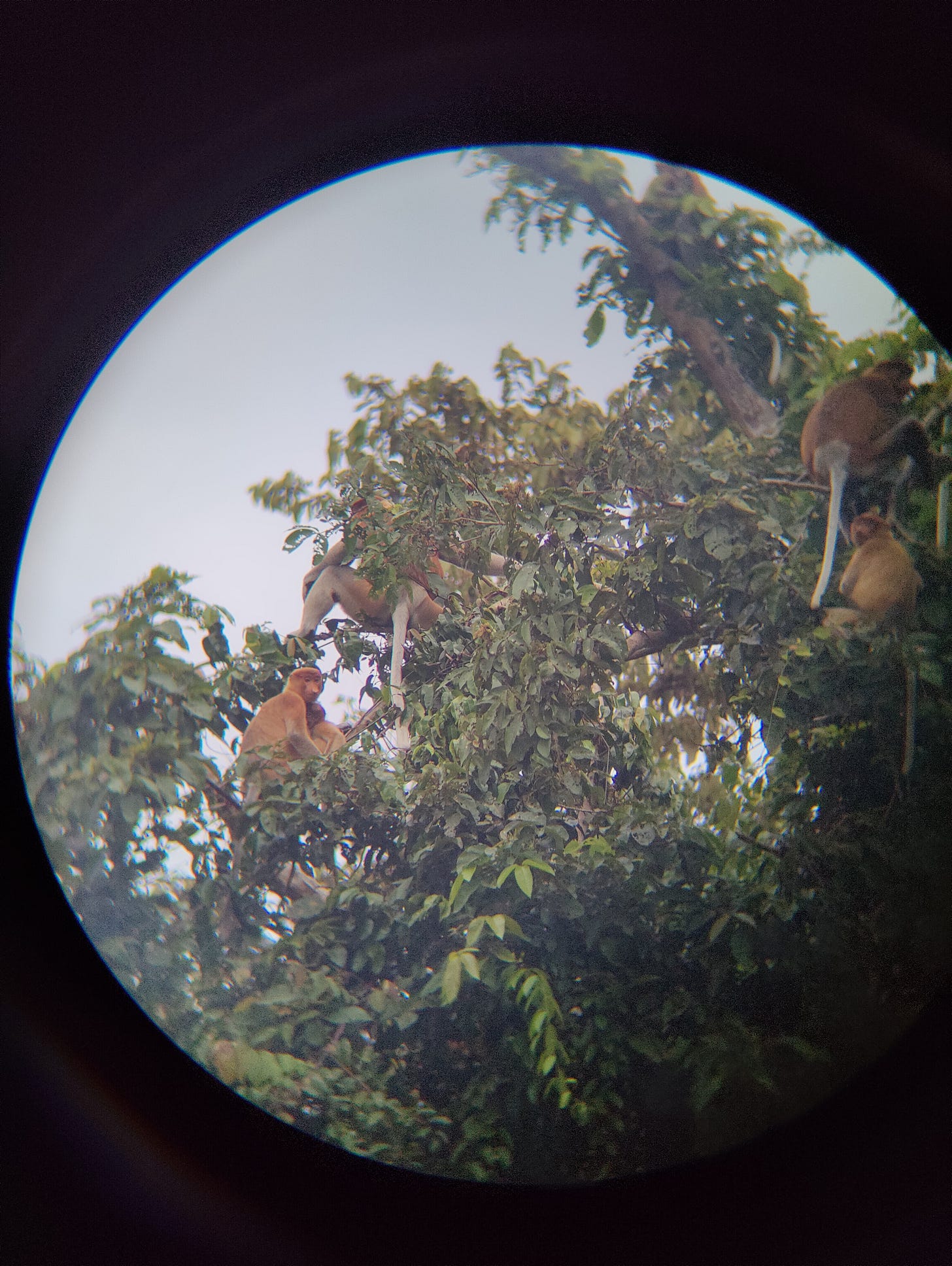adventures in Borneo
hairy men, crocodiles and knowing yourself
Condolences to everyone who are affected in the earthquake in Turkey and Syria. I finished this post to blow off some steam. I hope we get through it together and learn some lessons again.
Borneo is the third-largest island in the world, located north of Java, Indonesia. The Borneo rainforest is 140 million years old, home to many endemic species, including the Bornean orangutan, proboscis monkey, hornbill, clouded leopard, fruit bat and many more.
I was introduced to Borneo a few years ago by the legendary David Attenborough. As a fan of wildlife documentaries, I have been captivated by his narratives on our planet earth. It was no different when he sat with a female orangutan to show the skills of our cousins in Borneo.
6 months ago, I bought a one-way ticket to South East Asia without any plans (there was a cheap ticket, nothing emotional). A few days later, I saw his new documentary, Our Planet. It was heartbreaking to learn that Bornean orangutans have lost most of their habitat.
“Would it be possible to visit Borneo?” said to myself, after the show.
“Don’t get ridiculous”, replied the skeptic. “You see those places in documentaries.“
I was inside a huge bungalow house, alone, thinking about the next day. There were 4 bunk beds, made of wood, covered by white beds and sheets. It was already late, there was pitch-black darkness outside. An immersive sound was filling the void. The sound of insects, owls, frogs and all other nocturnal animals.
Shortly before, I was greeted by a monk (if you are bald and wearing an orange dress, I assume you are a monk). He manages the facility. We are 15 min away from the Sepilok Orangutan Rehab Center. I am in Sandakan, in the northeast part of the island, Borneo. Yes, it’s happening. (what a surprise after the intro)
I still don’t have any plans, but I know that I have 10 days in Borneo. I will visit the rehab center tomorrow and figure out the rest. I am ready to discover the beauty of this ancient world, to walk over the footprints of Sir Attenborough.
“Good morning!” she says. Another guest, an Australian woman, is happy to see me at breakfast. “We are the only ones here. There are not many visitors right now, because no other nuts come here during Christmas.” she says, as I am still trying to acclimate myself to this new world.
After breakfast, the monk drops us at the rehab center. It is a famous place to see orangutans. The sanctuary operates to train orphaned baby orangutans - rescued from logging sites, plantations, and illegal hunting - so that they can survive again in the wild.
At 10, there is snack time for orangutans and a chance for tourists to watch them. It is for the old habitants of the sanctuary, they come from the forest for free food. As the minutes tick by; I take my place, visitors set up their cameras. I have never seen lenses of that size. There are a few telescopes, I believe. Clearly, some people are more enthusiastic than others.
Then, a forest person shows up on the platform. Vow! A sound of astonishment echoes among curious tourists, followed by a deep silence again. But, his friends don’t join the cute orangutan. The shy guy is eating his banana alone under the gaze of 200 tourists.
It looks like a sad picture but actually, it is a good sign. It means that orangutans managed to get food in the wild.
In any case, I am eager to discover more of this world. I learned from a ranger that there is a center for proboscis monkey, Labuk Bay. I grab a taxi and arrive at my second destination in Borneo. This time, I am lucky, I have a chance to watch this majestic creature closely.
It is hard to believe that with larger noses, male proboscis monkeys attract more females to their harem. I am proud of my big nose from now on. I hope my future wife will too.
Sadly, these 2 centers are among a few places to spot wildlife in Borneo. Once covered by ancient rainforests, the area was reduced due to first logging by the wood industry and then the palm oil plantations.
Today, palm trees are the natural vegetation on the island and the wildlife has vastly diminished. It is hard not to notice.
When I walk in a tropical rainforest, I realize what we have lost. It is nothing like your regular daily forest :S. A continuous tree canopy blocks the sunlight, creating a humid, dark and mystique environment, and a diverse and complex life in each layer of the rainforest. Birds, insects, trees and rain perform a symphony. It looks, sounds and feels better than the documentaries.
Bewitched by the beauty of the rainforest, I am ready for the real adventure. Persuaded by the taxi driver, I set off for the third destination. A jungle camp at Kinabatangan river.
“Do you see it?”, our ranger, Nyan, yells to us at the stern of the boat. “What is it?” It is hard to spot from that distance. The heavy rain narrows the field of view. “A crocodile” he says, “a big one, almost 3 meters”, “and this is our camp” - showing a shed, which is 50m away from the giant reptile.
We meandered for almost one hour in the Kinabatangan river, under heavy rain, to reach our camp, Camp Uncle Tan.
The feeling of solitude begins - among the vulnerability and excitement as we arrive at our camp. We are 5 people in the jungle, 2 rangers and 3 guests; I and a young Russian couple. It is an uncharted territory, and I am no more capable than a baby orangutan. Thankfully, the rangers will teach us which plant to eat, not to touch, to use as a medicine or how to keep the rats away from the camp (though we failed on the rat part). I feel alive.
Of course, we cook, we have tools, but still, everything is primitive.
Our first adventure is a boat tour at night. A mission to observe nocturnal animals. I am not sure how we are going to spot animals in the darkness, but our ranger, Nyan, is confident. It is a starry night, we cruise slowly, watching both sides of the river, without disturbing the inhabitants of the jungle, knowing that we are the guests here. Unbelievably, Nyan spots various birds, owls and cats far away with his torch light.
We are back at the camp, snacking before bed in front of the fire. The older ranger, Lan, is telling us the story of the camp (don’t worry it is not a horror story). “20 years ago, Uncle Tan built this camp to create a very basic facility, in contrast to other resorts on the riverbank, to become a part of the jungle. Since his death, I have been running the camp. I lived through storms and floods that destroyed the camp, and stayed here alone during the pandemic (with my rooster). We hosted many researchers, journalists here.” He is a warrior, that’s clear. I am beginning to connect with the rangers.
I saw some books on the corner, books that previous guests have left or gifted. One of them is outshining others. Men eating crocodiles of Borneo. A nice discovery before going to bed.
In the next few days, we did boat tours and jungle walks. Our rangers introduced us to the marvelous fauna of Borneo - pig-tail macaque, proboscis monkey, cats, kingfisher, hornbill - along with its diverse flora.
On our last walk, we decided to climb the hill in the dense jungle to watch the scenery. The path was slippery. The air was moist, I was hardly breathing. Spiky plants were stinging my body. I was behind Nyan and the Russian couple. As Nyan decided to bring us back because of our moans, we heard a rustle from the tree above us. Immediately, Nyan whispered to us to crouch down. We were all thinking the same thing. We quietly waited under the tree. And then, it showed itself. For only a second, we made eye contact. He was a young, male orangutan. He looked so comfortable on top of the tree with his big, grotesque, hairy body. He had this naughty look on his face before seeing us and running away.
The most astounding thing is not to observe these primates in their home (though they are quite amazing), but to realize that I am one of them. It feels so natural to live in the jungle, joining the party. I know, I still belong here. I understand him when Nyan says he is a jungle man. My mind and body are one in the jungle, one with the jungle. I’m afraid I have suppressed my archaic self far too much. Now, I know it is weaker than ever, but Plato’s dark horse is still pulling the chariot, and I am glad it does. I am aware of it now, I embrace it. “Know thyself” said once a great man. Now I know a bit more, more than yesterday, less than tomorrow.
Thank you, Lan and Nyan. Thank you, Sir Attenborough.
can







